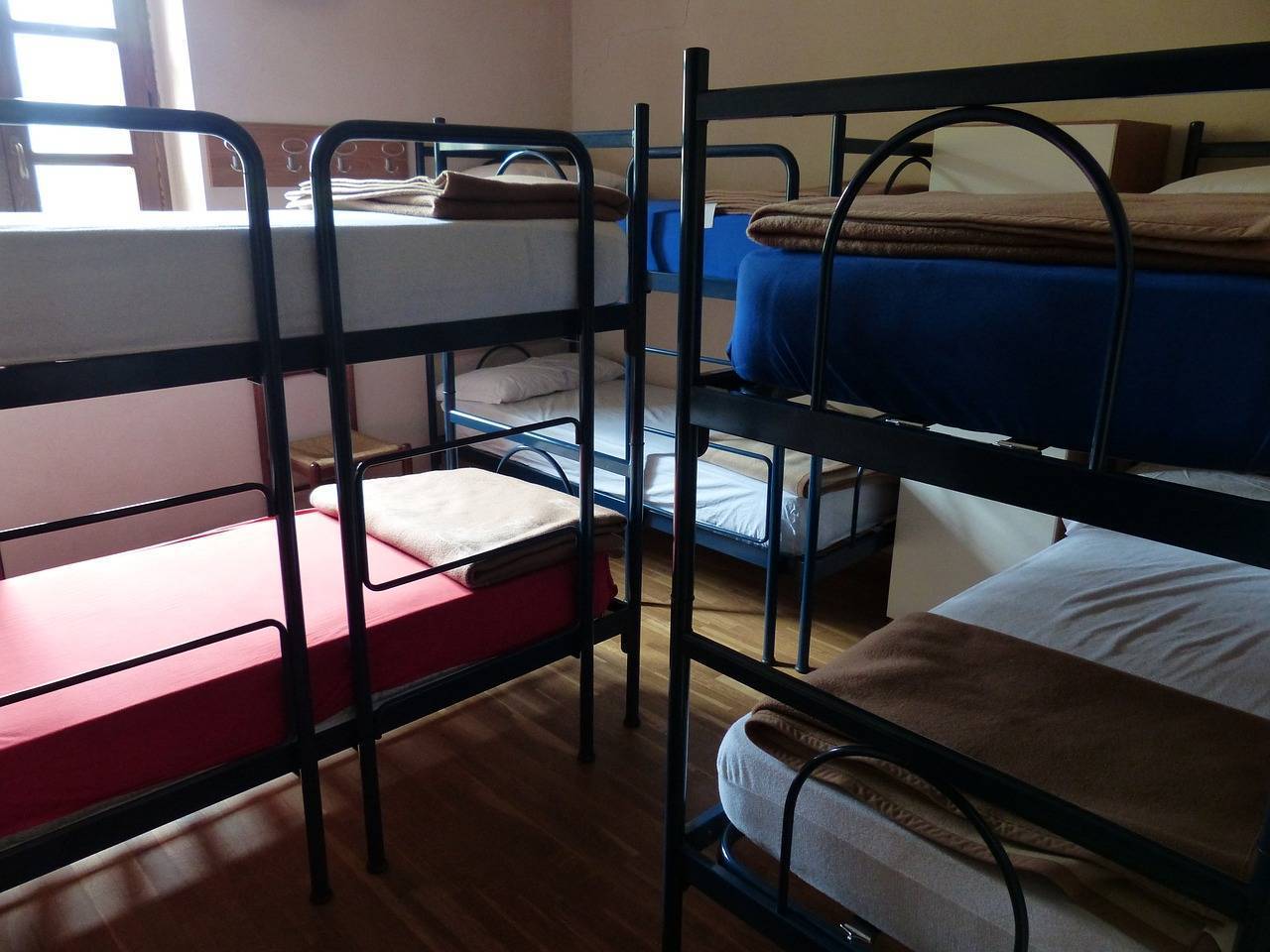The hostel industry in India has seen significant growth, driven by young, budget-conscious travelers who prefer affordable stays with a focus on community and shared experiences. Hostels are no longer just budget accommodations; they offer a space for social interaction, remote work, and local experiences. This trend, fueled by the rise of backpacking culture and digital nomadism, reflects a broader shift in how younger generations approach travel. With domestic tourists forming a growing share of hostel demand, the sector is evolving to meet the needs of a diverse range of travelers across both urban and offbeat destinations.
Pranav Dangi, Founder and CEO of The Hosteller, a prominent backpacker hostel chain, as per his insight shared on skift.com, emphasized how the surge in demand is reflective of broader global travel trends, where hostels are no longer just budget-friendly options, but are also catering to the lifestyle preferences of younger generations. According to Mr. Dangi, the rise in popularity of hostels is not only driven by affordability but also by the growing need for a sense of community and shared experiences. This is especially true among solo travelers, digital nomads, and small groups of friends who find the hostel environment conducive to social interactions and adventure. Hostels are increasingly offering more than just a place to sleep; they are becoming destinations in themselves, with an emphasis on community-building, communal kitchens, shared workspaces, and local experiences.
The Backpacking Culture and Changing Demographics
A key factor driving the rise in hostel demand is the growing backpacking culture in India, which is becoming more popular among millennials and Gen Z travelers. This demographic values experiences over luxury, preferring to explore new places, meet new people, and immerse themselves in local cultures. The trend is also supported by the increasing number of Indians opting for independent and adventure-driven travel, moving away from the traditional package tours. This shift has paved the way for companies like The Hosteller, which have seen a significant uptick in travelers looking for budget accommodations that offer more than just a place to sleep.
Furthermore, the preference for hostels is no longer limited to international travelers. Dangi points out that domestic travelers now form the majority of hostel residents. In the past, hostels in India were primarily populated by international backpackers, particularly those from Europe, Australia, and North America. However, due to factors such as the rising middle class, improved transportation infrastructure, and the growing trend of remote work, domestic travelers now make up a significant portion of hostel demand.
The growing affordability and accessibility of travel options within India have contributed to this shift. As more Indians have the financial ability and freedom to explore different regions, the demand for low-cost, yet community-oriented accommodations like hostels has grown substantially. The increase in domestic tourism is further bolstered by improved transportation links such as the expanding rail network, better flight connectivity, and the rise of budget airlines, making travel across India easier and more affordable.
Hostels Catering to Modern Lifestyle Choices
The shift toward lifestyle-driven travel is evident in the evolution of hostel offerings. Traditionally, hostels were seen as simple, bare-bones accommodations. However, they have now evolved to cater to modern travelers who seek both comfort and community. Newer hostel brands offer more tailored experiences, providing amenities like private rooms alongside dormitory-style accommodations, allowing guests to choose the experience that best suits them. For example, the Leisure Hotels Group, which operates a chain of experiential hotels, has launched Bedzzz, a brand catering to solo travelers with both exclusive rooms and dormitories.
In addition to traditional hostel features, new concepts such as “social hotels” have emerged to appeal to a broader range of travelers. Bedzzz Xclusive, an extension of the Bedzzz brand, introduces a social hotel experience, encouraging guests to interact in communal spaces. This trend reflects the growing demand for meaningful interactions among travelers, a key characteristic of modern hostel accommodations. The emphasis on social experiences, local culture, and community-driven activities is becoming a defining feature of India’s evolving hostel market.
Other popular hostel brands in India are also aligning with this shift. Zostel, for instance, has gained recognition for providing a community-driven experience, with locations across India, including offbeat destinations like Pushkar and Jaisalmer. GoStops, a leading hostel chain, is known for its vibrant community spaces, work-friendly environments, and local tour partnerships. By connecting travelers with local experiences and like-minded individuals, GoStops has become particularly popular among millennials and Gen Z travelers.
These hostels, along with brands like Backpacker Panda, are reshaping the concept of affordable travel by emphasizing interaction, cultural immersion, and shared experiences. Whether located in urban hubs like Delhi, Mumbai, and Bangalore, or remote destinations like Leh-Ladakh and Rishikesh, these hostels are contributing to a more dynamic and inclusive travel culture in India.
Moustache Hostel is another key player in India’s growing hostel market, with locations in popular destinations such as Jaipur, Udaipur, and Jodhpur. Known for its community-driven focus, Moustache Hostel offers both dormitory and private room accommodations. The hostel also organizes activities like city tours, cultural events, and local expeditions, providing guests with opportunities to engage with local culture. Popular with both domestic and international travelers, Moustache Hostel fosters a relaxed atmosphere and encourages meaningful interactions among guests.
The Appeal of Hostels in Both Urban and Offbeat Destinations
While hostels have traditionally been concentrated in major tourist hubs, their appeal is now extending to offbeat and lesser-known destinations. In addition to urban centers like Delhi, Mumbai, and Bangalore, hostels are increasingly popping up in smaller, off-the-beaten-path destinations such as Uttarakhand, Himachal Pradesh, and Rajasthan. This shift aligns with the broader trend of travelers seeking authentic, immersive experiences away from the well-trodden tourist routes. Hostels in these offbeat locations offer an opportunity to engage with nature, local culture, and adventure in ways that traditional hotels often cannot.
Hostels in both urban and rural areas are also becoming more tailored to specific types of travelers, such as digital nomads who require stable Wi-Fi and comfortable workspaces, or adventure seekers looking for affordable lodging while they embark on trekking or exploring rural destinations. This flexibility is part of what makes hostels increasingly attractive to a wider range of travelers beyond just budget-conscious tourists.
The Growth of Digital Nomadism and the Role of Technology
Another factor contributing to the increasing popularity of hostels is the rise of digital nomadism. With more young professionals working remotely, there is a growing demand for accommodations that cater to the needs of digital nomads. Hostels are uniquely positioned to meet this demand, offering affordable lodging with the added benefit of work-friendly environments. Many hostels now provide free Wi-Fi, co-working spaces, and private rooms equipped with desks and other amenities conducive to remote work.
The growth of remote work has also influenced how hostels market themselves. They are increasingly focusing on creating "workcation" opportunities, where guests can combine work and leisure in a comfortable, community-driven environment. The digital infrastructure in hostels is improving to meet the needs of this growing market segment, ensuring that remote workers can stay connected and productive while exploring new destinations.
A Competitive Hospitality Market
India's growing preference for hostels has not gone unnoticed by other hospitality players. Established hotel chains are also beginning to explore the hostel segment to capture the increasing demand for budget accommodations. The competition is intensifying, with both traditional hotels and new hostel brands vying for the attention of younger, budget-conscious travelers. This is pushing hostels to innovate and differentiate themselves in an increasingly crowded market.
Leisure Hotels Group’s Bedzzz and its extension Bedzzz Xclusive reflect this trend, offering a hybrid experience that blends the affordability of hostels with the comfort and amenities of hotels. This approach is expected to become more common as other hotel chains follow suit in tapping into the growing market of young travelers seeking affordable and community-focused accommodations.
Brands like OYO Life, which launched a hostel chain targeting young, tech-savvy travelers, and Treebo’s Tryst, focusing on budget-conscious yet premium stays, are also capitalizing on this trend. Additionally, brands such as FabHotels and Radisson Red have expanded into the hostel segment with tailored offerings, combining budget-friendly pricing with modern amenities like co-working spaces and communal lounges, further intensifying the competition and driving innovation in the market.
Market Potential in India and Globally
According to the Business standard report, the Indian hostel market, valued at $4.6 billion in 2023, is expected to grow to $12.1 billion by 2033, aligning with the global hostel market, which is projected to reach $11.69 billion by 2030. The increase in demand for budget-friendly, social accommodation options is driving this growth, especially in Tier-II, -III, and -IV cities in India. Both companies are banking on technology for sales maximization, with many properties adopting contactless check-ins and other tech-driven enhancements.
As per Future Market Insight Report, Global hostel market, valued at $4.6 billion in 2023, is projected to reach $12.1 billion by 2033, growing at a CAGR of 10.20%. Hostels, traditionally budget accommodations, have evolved to attract younger, modern travelers by offering enhanced amenities, social spaces, and artistic designs. These hostels are not only affordable but are becoming luxurious and experience-oriented, catering to diverse travel types including solo, group, student, and corporate travelers. The rise in international travel, the growth of digital tourism, and the increasing demand from educational travelers are key factors driving this growth. Additionally, the emergence of eco-friendly and themed hostels is creating new market opportunities.
The hostel market is experiencing significant growth, driven by the shift to online bookings, as travelers increasingly opt for the convenience of booking through modern hostel websites and third-party platforms. The rise of solo travel, particularly among millennials and younger travelers, further fuels demand for hostels, as they offer budget-friendly, social, and flexible accommodations. With strong growth potential in markets such as the United States, India, and Europe, the hostel sector is poised for continued expansion.
The Future of Hostels in India
The increasing popularity of hostels in India is indicative of the changing landscape of the country’s travel and hospitality industry. Driven by young, adventurous travelers and the rise of digital nomadism, hostels are evolving to meet the needs of modern-day travelers who value community, affordability, and immersive experiences. As the domestic travel market continues to grow, and as more travelers seek budget-friendly alternatives to traditional hotels, the demand for hostels is expected to rise, reshaping the Indian hospitality industry.
With growing interest in both urban and offbeat destinations, and an increasing focus on lifestyle-driven travel, hostels are set to play a significant role in the future of India’s tourism industry. As more brands enter the market and innovate to meet the needs of today’s travelers, the hostel segment will continue to thrive, offering exciting new opportunities for both travelers and entrepreneurs.









.png)